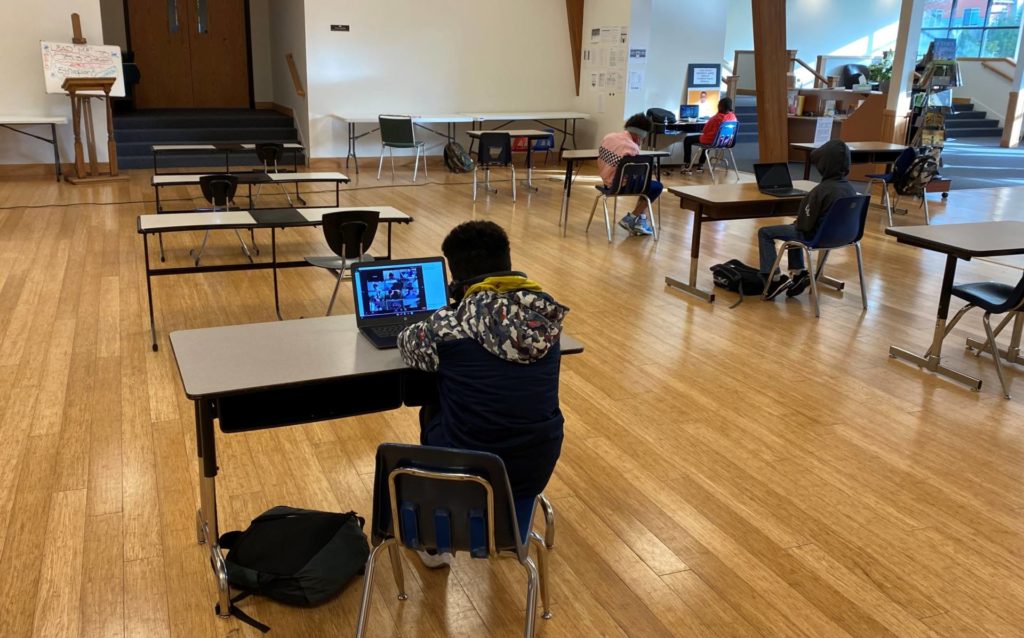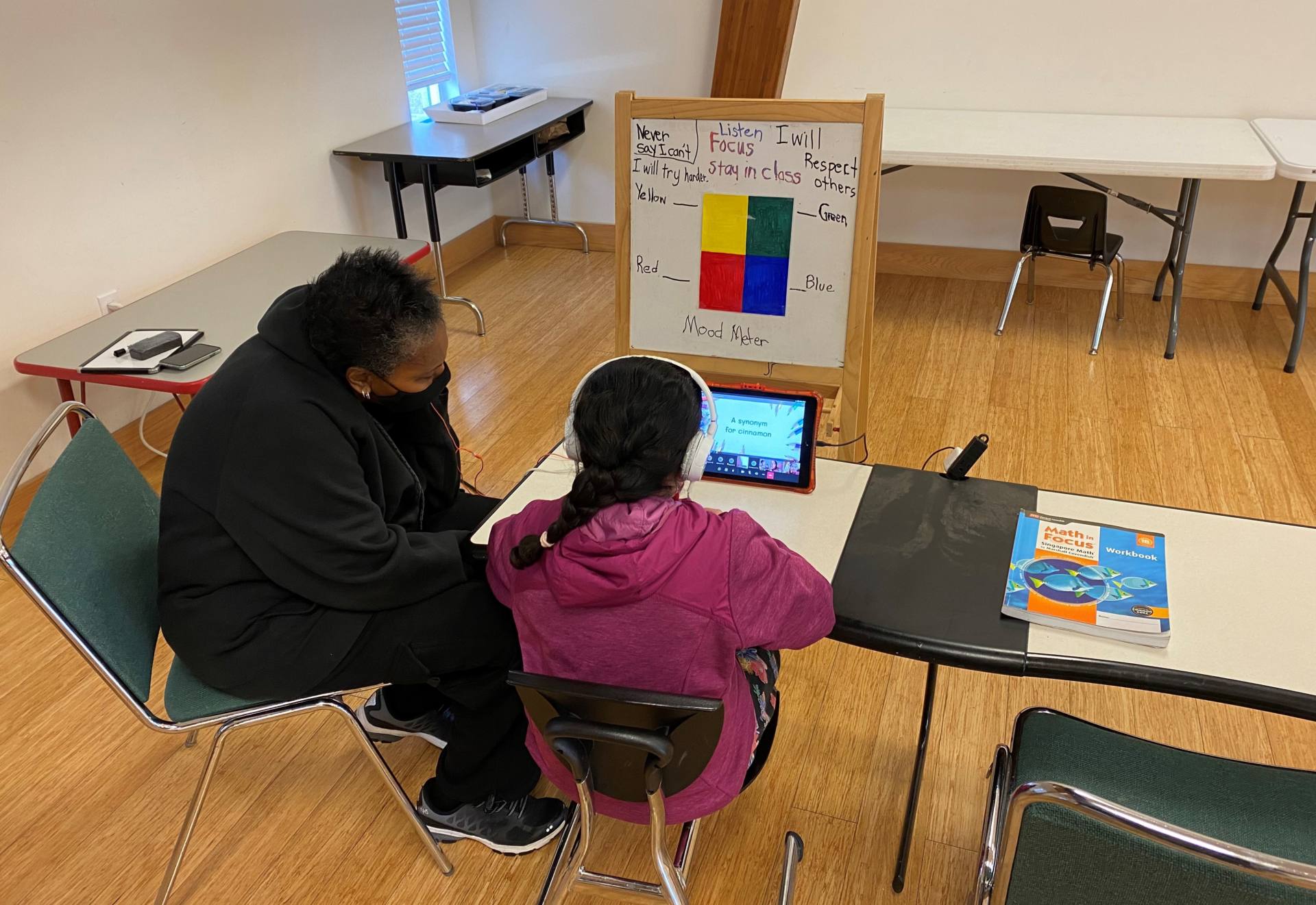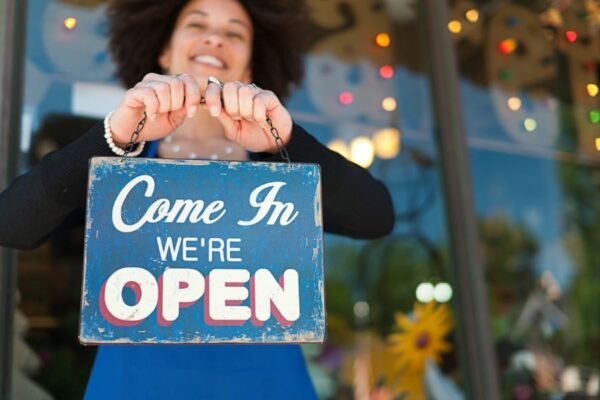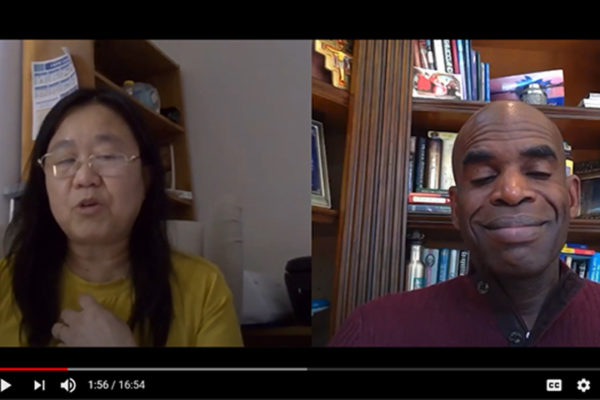A Seattle Community Comes Together for the Children
Last July, during a State of Black Student Genius meeting with Seattle Public Schools’ Superintendent Denise Juneau, community leaders and members of the Holgate Street Church of Christ heard about some of the challenges that Central District elementary school children were having with virtual learning.
It only took a few weeks for volunteers, mostly from the church, and other organizations to spring into action to help the students get their education back on track. The racial disparities in education that were already present before the pandemic were exacerbated by the crisis, and the community felt it was important for the children to receive the support they needed.
Marshaun Barber, executive director of Reclaiming Our Greatness, which supports families who are experiencing housing and food insecurity, said Holgate’s minister Jimmy Hurd offered a place to provide tutoring for the children, many of whom have special needs. United Way of King County partners with ROG, a Black-led, community-based organization, as part of its homelessness prevention efforts.
Barber said a combination of about 18 members of the congregation and other paid staff offers in-person, remote learning assistance as well as math, reading and social-emotional support for the 40 children who are in the program—39 students are Black and one is Latina.
All volunteers and staff members who contribute to this initiative are Black, so the children have the support of people who look like them and love them. They provide a high level of assistance that is generally not available to the students in a traditional setting, and particularly when it comes to remote learning.
“We’ve had students who were essentially failing when they first started the program who, by the end of the first semester, were able to raise their grades to B’s.”
Marshaun Barber, Reclaiming Our Greatness
“This program basically came out of just sitting in a virtual town hall and listening to community voices about what they needed and some of the challenges they faced when we went to remote learning,” Barber said. “I was in that conversation because we’re really big about honoring community voice and honoring community resilience.”
Barber added that, to ensure everyone’s health, there are temperature checks and social distance is maintained.
Barber said the program is already yielding positive results.
“We’ve had students who have entered the fourth grade, but they’re really reading and doing math at a first-grade level and not being able to do the curriculum or work with staff,” said Barber. “We’ve had students who were essentially failing when they first started the program who, by the end of the first semester, were able to raise their grades to B’s,” said Barber.
But it is the community that has made a difference for the children.
“The staff is what really makes the program run because it is a labor of love,” Barber added. “With some of those kids having higher needs than other others, it takes a community effort. And folks from the community have been really stepping up.”
“Community folks come in and nurture the children’s social-emotional learning. Students participate in yoga, meditation and physical activity. They also have discussions around instilling resilience and leadership and that they can learn, especially during these challenging times,” Barber said.

Barber said parents have been grateful for the program because many of them were having a difficult time juggling the remote learning schedule and having access to the right technology so their children could meaningfully participate in their education.
“Some say that if it weren’t for the program, they wouldn’t even be engaging in their children’s education,” Barber said. “They’re also grateful for the daily feedback they get from the adults who work with the students because, in the traditional setting, they often did not get that.”
Barber said most students are enrolled in Seattle Public Schools, but they also have students who are enrolled in the Highline public school district. One family has a child that comes from the Auburn school district to participate.
“We’re just trying to be accommodating of the community need wherever there’s a need. We try to fulfill it,” Barber said.
Barber said many of the volunteers are retired teachers, and ROG has two staff members working in the program. She added that Therapeutic Health Services, which provides additional support in the community, funds a recent early childhood education graduate to aid the students.
Glover Empower Mentoring, a community-based organization in Kent, also partnered with Reclaiming Our Youth to provide weekly social, emotional-learning activities for the students in the program.
Funding for the program came from the Seattle University’s Center for Community Engagement COVID Response Continuous Learning Grant and from Washington’s Department of Commerce’s Childcare Partnership Grant.
Siemer Institute, a national organization that focuses on stabilizing families’ housing challenges, funds Reclaiming Our Greatness’ homelessness prevention goals.
“Without Siemer’s support, we wouldn’t be able to do this community work and support children and families, which is my passion and the community’s passion, too,” Barber said.





Comments